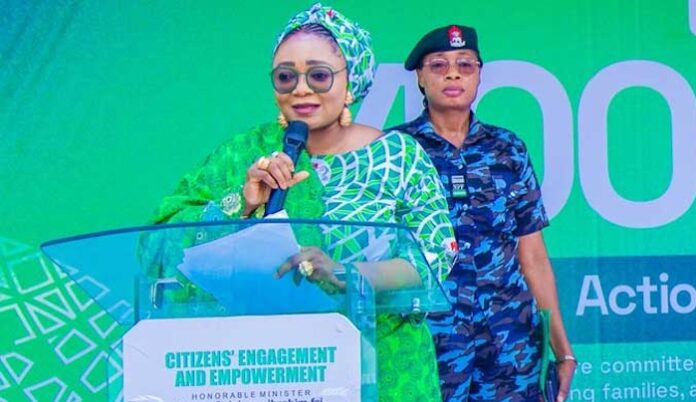The Minister of Women Affairs, Imaan Sulaiman-Ibrahim, has urged state and federal officials to step up efforts toward achieving gender equality in Nigeria, calling for bold, coordinated action to drive women’s empowerment and institutional reform across the country.
Speaking on Tuesday at the National Gender Equality and Women Empowerment (GEWE) Coordination Mechanism and Institutional Strengthening Meeting in Abuja, Sulaiman-Ibrahim described the gathering—organised in partnership with UN Women—as both “timely and strategic,” bringing together key government stakeholders to align efforts and build momentum.
She laid out a series of stark statistics that called for urgent action: only 17% of women aged 15–49 have completed secondary education, maternal mortality remains alarmingly high at 512 deaths per 100,000 live births, and indoor air pollution still kills more than 98,000 women annually.
The Minister, while acknowledging 30 years since the establishment of the Women Affairs Ministries at state and federal levels, called for not only celebration, but also a moment of introspection.
“We must ask: what legacy are we building? How do we shift from programme-based to system-based impact?
“Our ministries must not be symbolic entities; they are catalysts for economic growth, national stability, and social justice,” Sulaiman-Ibrahim said.
She called on State Commissioners and Permanent Secretaries to deepen inter-agency partnerships and reposition women’s affairs as central to policy and national development, calling for Women Affairs to no longer be seen as merely ‘peripheral.’
To that end, she announced the distribution of ICT equipment to all State Ministries of Women Affairs, supported by UN Women. The digital tools are intended to support data-driven programming, monitoring and evaluation, and digital reporting.
Sulaiman-Ibrahim also called for the full domestication of the National Women’s Economic Empowerment (WEE) Policy at the local government level and encouraged states to integrate lessons from Nigeria’s participation at the recent 69th Commission on the Status of Women (CSW69), especially on themes like financing for development and digital inclusion.
On trade, she highlighted a new strategy to link women-led cooperatives, SMEs, and agribusinesses to continental markets through the African Continental Free Trade Agreement (AfCFTA), especially under the upcoming WAVE Renewed Hope Social Impact Programme.
She further expressed concern over the low numbers of women in political leadership: only 4 of 109 senators, 16 of 360 House of Representatives members, and just 57 of 991 state assembly seats are held by women, while calling on all commissioners to support the Special Seats for Women Bill and engage state actors and grassroots networks to push for stronger female representation.
She also announced a national dialogue on women’s political representation, scheduled for July 9, 2025, during the House of Representatives Open Week.

